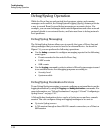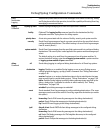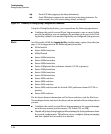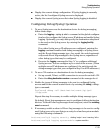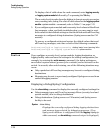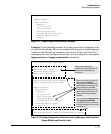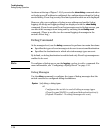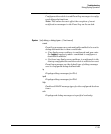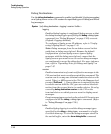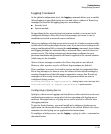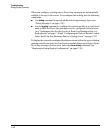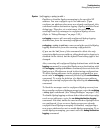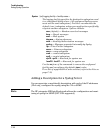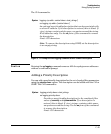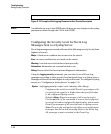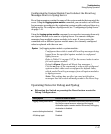
Troubleshooting
Debug/Syslog Operation
Debug Destinations
Use the debug destination command to enable (and disable) Syslog messaging
on a Syslog server or to a CLI session for specified types of debug and Event
Log messages.
Syntax: [no] debug destination < logging | session | buffer >
logging
Enables Syslog logging to configured Syslog servers so that
the debug message types specified by the debug <debug-type>
command (see “Debug Messages” on page C-38) are sent.
(Default: Logging disabled)
To configure a Syslog server IP address, refer to “Config-
uring a Syslog Server” on page C-41.
Note: Debug messages from the switches covered in this
guide have a debug severity level. Because the default
configuration of some Syslog servers ignore Syslog
messages with the debug severity level, ensure that the
Syslog servers you want to use to receive debug messages
are configured to accept the debug level. For more informa-
tion, refer to “Operating Notes for Debug and Syslog” on
page C-47.
session
Enables transmission of event notification messages to the
CLI session that most recently executed this command. The
session can be on any one terminal emulation device with
serial, Telnet, or SSH access to the CLI at the Manager level
prompt (ProCurve#_ ). If more than one terminal device has
a console session with the CLI, you can redirect the desti-
nation from the current device to another device. Do so by
executing debug destination session in the CLI on the
terminal device on which you now want to display event
messages.
Event message types received on the selected CLI session are
configured with the debug < debug-type > command. (Refer
to “Debug Messages” on page C-38.)
buffer
Enables Syslog logging to send the debug message types
specified by the debug < debug-type > command to a buffer
in switch memory. To view the debug messages stored in
the switch buffer, enter the show debug buffer command.
C-40



